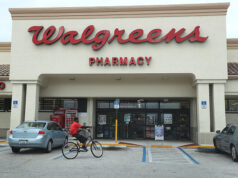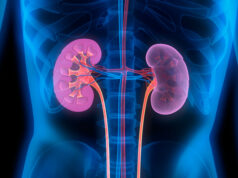
Hematology-oncology – especially immunotherapy thereof – dominated an awards ceremony for drug and medical technology industries often compared with the Oscars or even the Nobel Prize.
The 12th annual Prix Galien Awards Gala took place Thursday night at New York’s Museum of Natural History, bringing together multiple Nobel laureates, as well as figures like Bill and Melinda Gates Foundation CEO Sue Desmond-Hellman.
The Best Pharmaceutical Product award went to Celgene and Agios Pharmaceuticals’ Idhifa (enasidenib), used to treat IDH2-mutated acute myeloid leukemia, while the award in the Best Medical Technology category went to Boston Scientific’s Watchman, used for atrial fibrillation. But two companies ended up sharing the Best Biotechnology Product category: Gilead Sciences’ Kite Pharma subsidiary, for the CAR-T therapy Yescarta (axicabtagene ciloleucel) in diffuse large B-cell lymphoma, and Novartis for its CAR-T, Kymriah (tisagenlecleucel), for pediatric acute lymphoblastic leukemia.
The Food and Drug Administration approved Watchman in March 2015. The other three winners were all approved last year: Idhifa and Kymriah in August 2017, followed by Yescarta two months later. Kymriah also won approval for DLBCL in May of this year, and the FDA approved Agios’ Tibsovo (ivosidenib), for IDH1-mutated AML, in July.
CAR-T therapy, which involves extracting the patient’s T cells, using a viral vector to target them to specific cancer cell-surface proteins and then infusing them back into the body, have been hailed as a significant breakthrough, particularly in blood cancers. Indeed, Celgene also has a partnership with Cambridge, Massachusetts-based bluebird bio to develop bb2121 for multiple myeloma, and in January spent $9 billion to acquire Seattle-based CAR-T developer Juno Therapeutics. Gilead itself had spent $11.9 billion to buy Kite shortly after Yescarta’s approval.
However, CAR-Ts also carry significant price tags: Kymriah costs $475,000 – not including supportive care costs – for ALL, and both approved therapies cost $373,000 for DLBCL. Yet, a pay-for-performance deal with the Centers for Medicare and Medicaid Services fell through earlier this year. Although a study published earlier this month found that Kymriah for ALL is cost-effective, with a price in line with its benefits, reimbursement models have not kept up with the pace of development. At the same time, CAR-Ts have faced tough reimbursement negotiations in Europe, especially in the UK. Meanwhile, other issues have arisen as well. For example, as the market grows and drives up demand, CAR-Ts could face a logistical bottleneck.
Photo: Alaric DeArment, MedCity News







